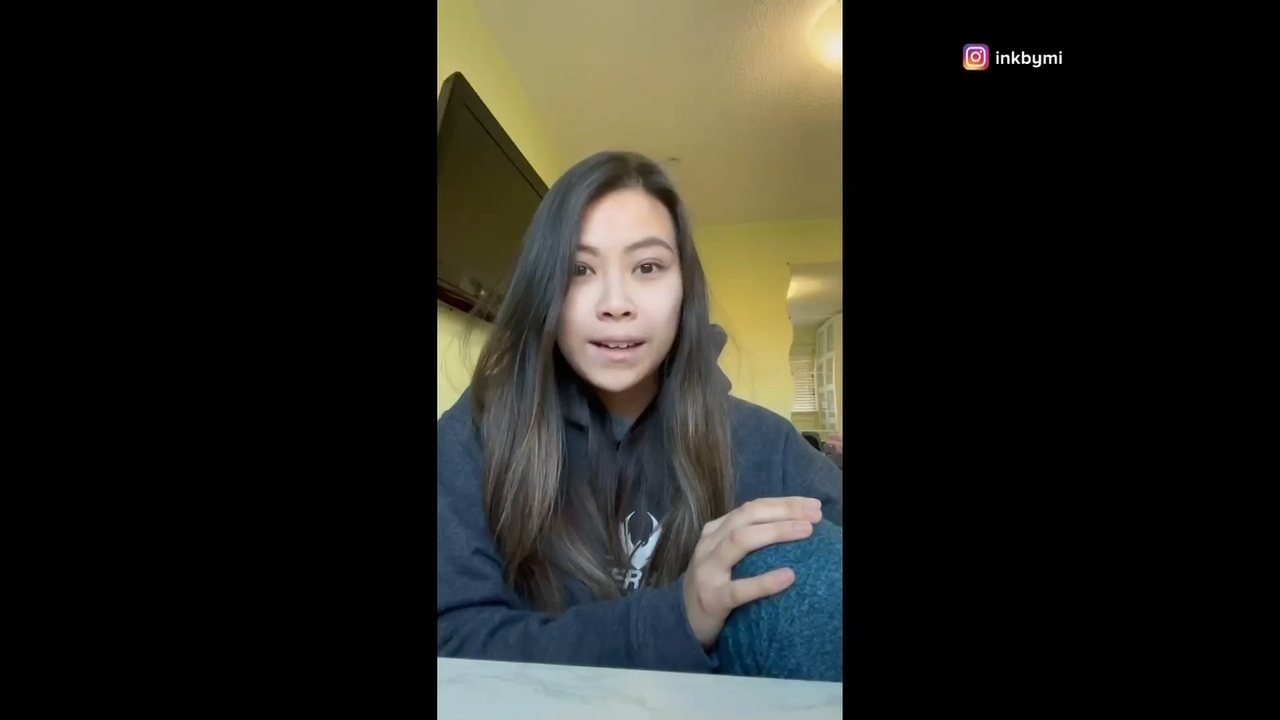A small business owner in Toronto says she was banned from participating in a popular flea market, after she asked the organizer to spell her Vietnamese name correctly.
WATCH: https://toronto.citynews.ca/2021/03/25/business-owner-banned-flea-market-toronto/
Using the hashtag #StopAsianHate, Aimi Tran recently shared a 14-minute video on her Instagram page detailing experiences of alleged bullying, abusive language and what she calls unfair treatment from the market organizer, back in 2019.
“I was sick to my stomach for months,” says Tran. “Debating for so long if I should stand up for myself publicly.”
In her video, Tran chose not to identify the market, but local artisans who allege they have similar experiences have since identified it as the Trinity Bellwoods Flea Market, and the organizer as Felicia Laplume.
Tran confirmed to CityNews that Trinity Bellwoods Flea Market is the organization she was talking about.
https://toronto.citynews.ca/2021/03/25/business-owner-banned-flea-market-toronto/
“I was silenced and kicked out of a local market because this person couldn’t fix one little typo,” says Tran. “If I had a more normal or more generic spelling name… would I have been treated differently?”
Tran is the owner of @inkbymi, a small paper card and calligraphy business she started in August 2019. At the time, she applied to participate in a number of markets in Toronto. She says she was thrilled when she was accepted into the Trinity Bellwoods 2019 holiday market.
When the market started promoting her business in September 2019, Tran says the business name was spelled incorrectly: “inkbyami” – instead of “inkbymi.” Mi is her Vietnamese name. Tran sent the market a message to let them know, but never received a response. A week before the market was set to take place, Tran says the market again misidentified her business.
In a second message Tran says she sent to organizers, which she shows in her social media video, she again points out the error. She writes in part, “I would greatly appreciate it if you would change this,” thanking the organizers and adding that she was excited to attend the market.
Tran says in response she received an e-transfer refunding her vendors’ deposit. She was also told by the market in a message and email that the manner in which she asked for the correction was condescending and rude.

“I was heartbroken. I bawled my eyes out,” she says. “I had no idea what I did wrong. I felt like a failure.”
After the market revoked her spot, Tran received a message to give Laplume a call to further discuss the situation.
“She lashed out at me,” says Tran. “In the first minute, I apologized for any misunderstanding and reiterated that my message wasn’t meant to be disrespectful.”
“I was speechless, I’ve never been spoken to in that tone.”
Tran says the organizer informed her that her team was not responsible for any autocorrect or spelling errors, “just because of the obscurity of your name.”
“When I asked over the phone how my name was spelled obscure, she replied, the name Mi was unusual and obscure,” Tran says.
“So I replied saying: ‘This is my Vietnamese name, and I’m not trying to be picky, I just want it to be spelled correctly so it can be accessible to prospective customers’.”
After the phone call, Tran says she received the following message from the organizer: “This will absolutely, 100 per cent, affect your opportunities as a small business owner in anything related to my market and local markets and events moving forward.”
“That’s a threat to my livelihood,” Tran says. “I stayed up multiple nights wondering what she could be saying to other organizers.”

CityNews has reached out to Trinity Bellwoods Flea Market for comment. In a statement, Laplume calls Tran’s accusations baseless.
“It is with deep regret we recently learned of the false allegations of descrimination [sic.] made by Aimi Tran. We confirm, for the record. That Ms [sic] Tran’s allegations are patently false and have no basis in fact,” Laplume wrote to CityNews.
“The Trinity Bellwoods Flea is a community market that is seriously committed to diversity and inclusion. If required, we are more than prepared to defend our organization against the baseless allegations being made by Ms Tran. We deeply regret that this individual has resorted to attacking a beloved local market that is known for its unwavering support of small business and the community. We look forward to resolving this matter in the best interest of all the small businesses we serve and our loyal dedicated community.”
CityNews also asked Laplume for an interview but has not received a response to that request.
The statement has also since been posted to the flea market’s Instagram.
Tran says she is surprised to have been directly named by the group when she made an effort to shield their identities in her own social media post. She also refutes Laplume’s assertion that her claims are baseless.
“It’s definitely untrue because in my video I do show what actually happened,” says Tran. “Ever since I saw that, I definitely feel more confident that I did the right thing.”
Tran’s close friend Angela Lam encouraged her to share her experience as an Asian woman running a small business to spotlight what she and others are facing.
“The Asian community is prone to micro-aggressions against our names, the way we look, how we talk,” explains Lam. “Because this is involving her Vietnamese name, I take this personally too. Because her Vietnamese name includes her heritage, her culture, and it was disrespected. Disrespecting her Vietnamese name is also disrespecting the Asian community.”

The phrase ‘flatten the curve’ may sound familiar to you. It’s been tossed around in media briefings from epidemiologists and politicians during the COVID-19 pandemic. But scientists have been using this phrase since at least the 1980’s and its origins didn’t start with a deadly virus.
WATCH: https://toronto.citynews.ca/2021/03/18/flattening-the-climate-curve-requires-national-plan-carbon-budget-says-mcgill-professor/
‘Flatten the curve’ has been used to describe how a shift away from fossil fuels could have put the world in a better position than it is in 2021, facing a climate crisis with a limited amount of time to make massive overhauls.
But flattening the curve requires social cohesion, a like-minded understanding that climate change is here, irreversible, and the global community needs to work together to get back on track to avoid the worst. (A note here: the term ‘social cohesion’ was first heard from Dr. Miriam Diamond, a University of Toronto professor, in a pre-interview for the Citvtv documentary ‘The Fight for Tomorrow.’)
While Canadians agree on many things, the cause and effect of climate change isn’t one of them, despite the science.
“The understanding of climate change is not the same across the country,” said Catherine Potvin, a biology professor at Montreal’s McGill University, who also holds the Canada Research Chair in climate mitigation and tropical forests.
“[In] central provinces, people are much more confused about the roles of humans in climate change. People in Quebec are very clear about that.”
Part of the issue is the way climate change has been spoken about – and debated – by lawmakers.
“I think one of the problem[s] with Canada is the fact that we don’t have a country vision that resists changes in political parties. In the UK, for example, climate change has become a non political issue,” said Potvin.
The UK has used a carbon budget since 2008, which operates like a financial budget, putting a ‘spending’ cap on total greenhouse gas emissions which should not be exceeded.
“If you want to reduce your emissions, then next year you add up a reduced carbon budget. So you will emit less and you will see where the cuts are made,” said Potvin.
“It is like a planned diet of carbon dioxide that allows you to program how your country will advance in its reduction. We don’t have such a rational approach now. And I think it’s hurting progress.”
Canada is one of the worst emitters on the planet – yearly, it jockeys with the United States and Australia as the top worst emitter in the world, a prize no country should want.
Potvin suggests a simple solution: in order to reach emissions targets the climate crisis can’t be divisive.
“That is the desire for Canada, that we have a state policy that transcends political parties and allows us to advance in reducing this very high footprint that each and every one of us, as Canadians have.”
With data and facts on their side, Potvin says it’s now the role of climate scientists to spell out what needs to change in Canada, to avoid the worst of the climate crisis.
“In Canada, the oil industry is almost half of the emissions of the country. So we will never be able to reach targets unless there is a difficult but necessary conversation on how to phase out that industry,” she said.

“It’s not about closing tomorrow, there’s too many jobs at stake. It is about how to support this industry and all the workers that depend on this industry to move to other sectors. If we don’t do that, the industry, I believe, will collapse.”
The year 2020 marked five years since Canada signed the Paris Agreement, committing to reduce emissions by 30 per cent from 2005 levels by 2030.
“People can change a lot in 10 years, society can evolve rapidly in 10 years. So, it’s not all doom and gloom, but the time is getting short,” said Potvin.
Catherine Potvin is featured in a new Citytv VeraCity documentary, The Fight For Tomorrow. The film explores the impact of the climate crisis on Canada’s largest cities and how eight Canadians are trying to change the course of our future. Produced and written by Megan Robinson, The Fight For Tomorrow premieres Tuesday, March 30 at 10pm/9pm CT on Citytv and Citytv.com. Join us for a live discussion about the documentary on Facebook, March 31 at 12pm EST.
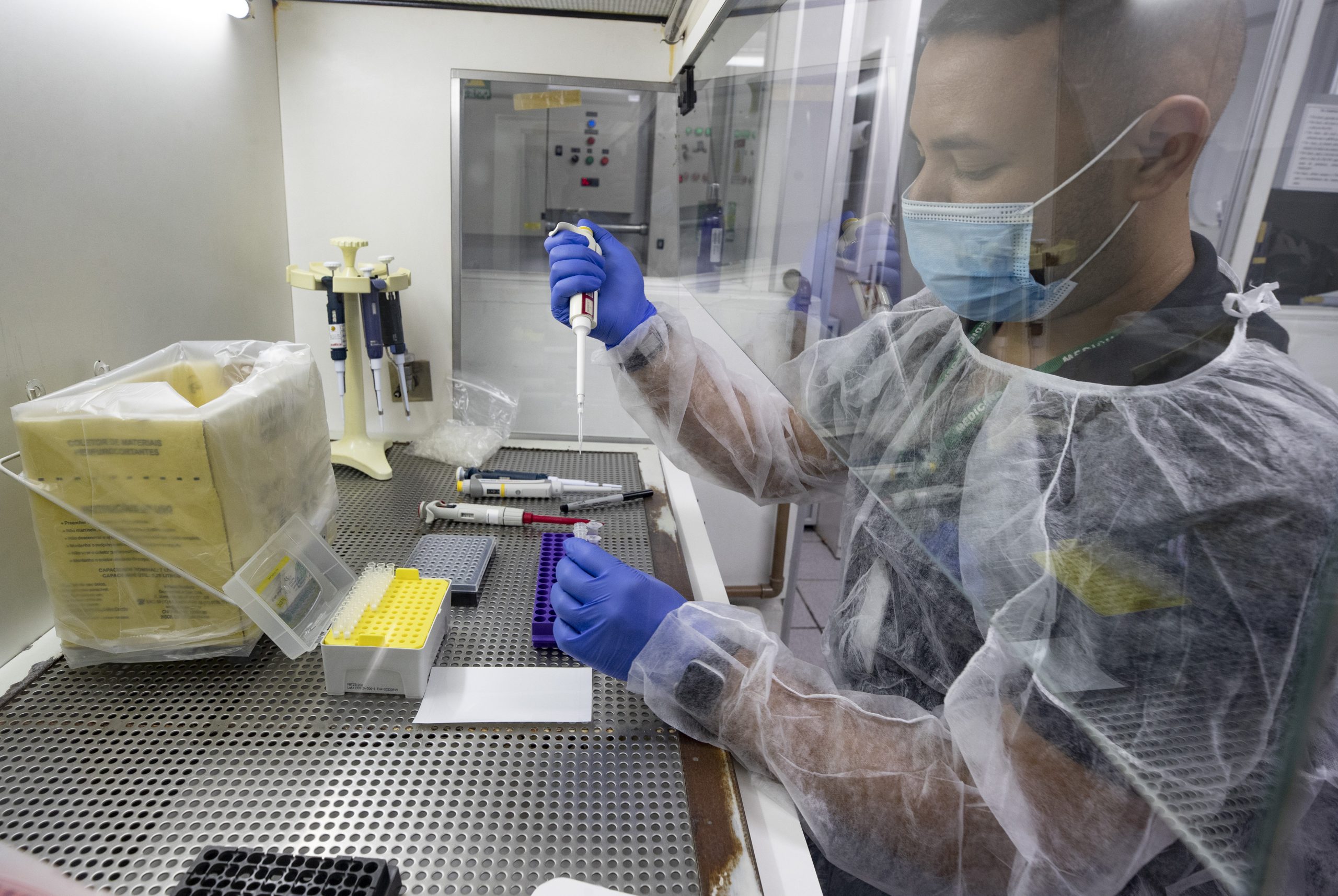
Public Health Ontario has made changes to how testing and screening is conducted for COVID-19 variants of concern (VOC), which are expected to help better detect them, specifically those that were first detected in South Africa and Brazil.
On February 3, the health agency implemented widespread testing for a unique mutation — labeled N501Y — that is found in the three most common variants of concern: B.1.1.7 first identified in the U.K., B.1.3.5.1 first identified in South Africa and P1, first identified in Brazil.
The B.1.1.7 variant is currently the most prominent in Ontario, representing 50 per cent of new cases, and current tests are able to detect it. New tools have now been developed to be able to identify the other two variants more precisely as well.
Dr. Vanessa Allen, Chief of Microbiology and Laboratory Science with Health Ontario, explains that the new test is a PCR test performed on samples that have already been confirmed as positive for COVID-19.
“[The test] looks for two mutations, the original one — which was the N501Y mutation — and a new second mutation called the E484K mutation,” she said. “This is helpful as the E484K mutation … is unique to the latter two variants of concern, B.1.3.5.1 and P1.”
Dr. Allen says this will allow “much more rapid identification” of these two variants.
“Because we know the N501Y mutation found in a strain without the E484K mutation is most likely the B.1.1.7 variant, there is no need to allocate genomic resources to that as we can get an early signal using a PCR test,” she further explained.
The changes were implemented on Monday with the goal of detecting the variants present in Ontario faster and with more accuracy.
“It does however mean that there may be an increase in some of the [cases of] P1 and B.1.3.5.1 as the goal is to identify these sooner rather than later,” she cautioned.
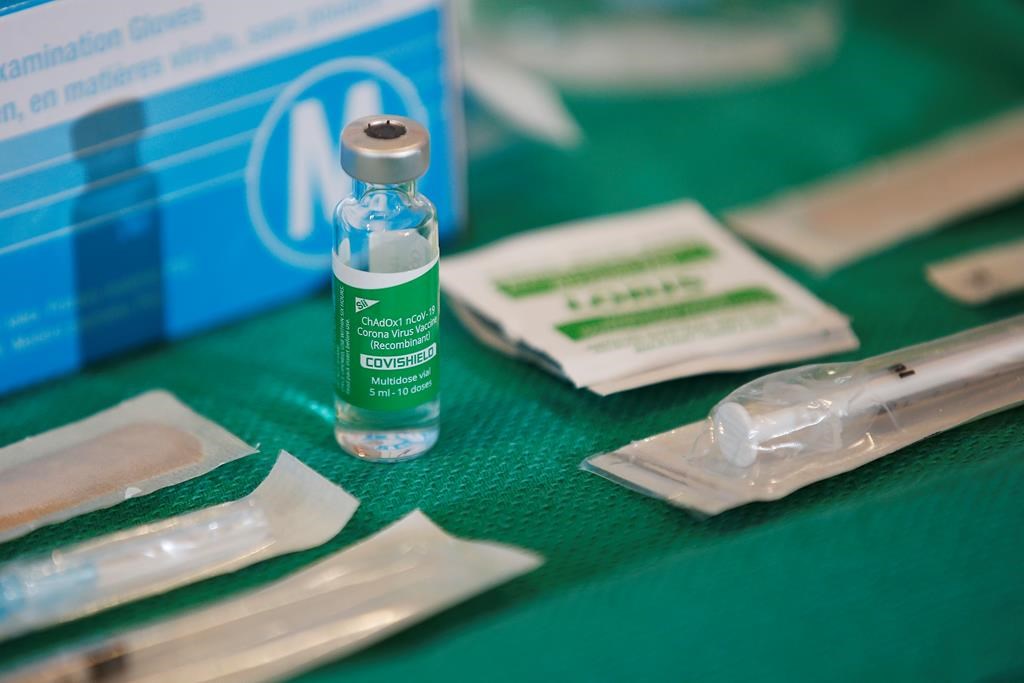
Health Canada has updated the label for the AstraZeneca COVID-19 vaccine.
This is to provide information on very rare reports of blood clots associated with low levels of blood platelets following immunization with the AstraZeneca vaccine.
According to Health Canada following reports of rare adverse events in Europe, it has worked closely with European regulators to review the evidence and has updated the product monograph.
The department has also issued guidance for healthcare professionals and vaccine recipients on the potential symptoms to monitor.
Health Canada officials are reassuring Canadians that the AstraZeneca COVID-19 vaccine continues to be safe and effective at protecting them against the virus.
It encourages people to get immunized with any of the COVID-19 vaccines that are authorized in Canada.
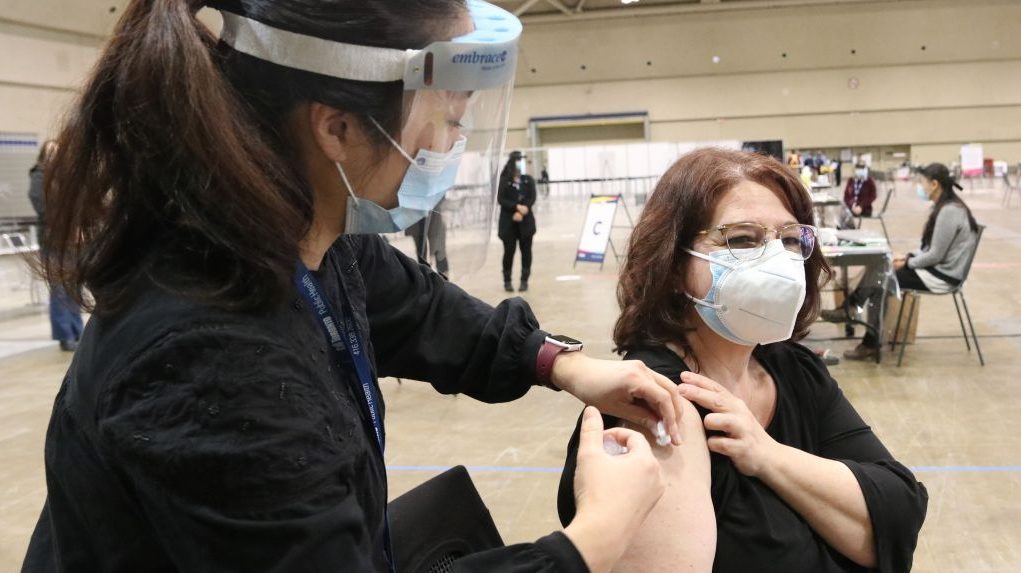
Scientists at the National Advisory Committee on Immunization are reviewing research that suggests people who have been infected with COVID-19 can turbocharge their antibodies with just one dose of a vaccine.
The committee is “actively reviewing evidence on the protection offered by one dose for those previously infected, and whether a second dose continues to be necessary,” says a statement from the panel.
Caroline Quach-Thanh said the committee is “debating” the question of how many vaccine doses someone who has been infected with COVID-19 requires.
“France and Quebec have said only one,” said Quach-Thanh, chair of the committee, in an email.
Studies have suggested people who have had COVID-19 may produce the required antibody response with just one dose of a vaccine.
A letter in the New England Journal of Medicine earlier this month says the question of whether one dose is enough “requires investigation.” It’s written by 32 researchers from the Icahn School of Medicine at Mount Sinai in New York after conducting a small study.
It suggests people who have been infected with the novel coronavirus may produce 10 to 45 times as many antibodies after the first dose of the Pfizer-BioNTech or Moderna vaccines compared with someone who hasn’t had COVID-19. The research is yet to be peer reviewed.
Quach-Thanh said data show that the response to the first dose of vaccine is strong for those who have been infected with the virus.
“Like a booster dose,” she said.
Those who have been infected and get a second shot may also have stronger side-effects, such as fever, aches and feeling tired, which are signs their immune system is already primed, Quach-Thanh said.
“The question that remains is: is that true for everyone or at least for the vast majority?”
Dr. Bonnie Henry, British Columbia’s provincial health officer, said early data from around the world suggest people who have had a lab-confirmed positive test for COVID-19 get a good response from just one dose of a vaccine.
“The jury is still out but more and more it is looking like they get a really strong booster effect from a single dose and a second booster may not be necessary,” she said.
Quebec’s public health director, Horacio Arruda, told a news conference earlier this week that immunization experts believe a single dose of vaccine, when given three months after recovery from the disease, provides the same amount of immunity as two doses.
A second dose, Arruda explained, is not recommended for people who have had COVID-19 because “it doesn’t give more immunity, and it brings more significant adverse effects,” such as flu-like symptoms.
Prof. Fiona Brinkman of Simon Fraser University’s molecular biology and biochemistry department said the number of antibodies produced by a person may depend on how severe their COVID-19 infection was.
That does not mean people need to get an antibody test done before getting a vaccine, although that may change, she added.
“Right now, the policy is that we’re just vaccinating everybody and doing that first dose.”
However, Quach-Thanh warned that the presence of antibodies is not, in itself, a sign of protection and all antibodies are not created equal.
“Some people without much antibodies will have protection, while others with antibodies may not be that well protected,” she said.
Brinkman said it’s also possible that there may be a difference in the kind of antibodies produced after a COVID-19 infection and a vaccine.
“The most important thing is to have these certain antibodies — what we call neutralizing antibodies — that we really want,” she said, adding the vaccines have been shown to produce them.
The experts said there is no harm in those who have been infected with COVID-19 getting both shots.
The statement from the committee said it is also evaluating how long someone previously infected with COVID-19 could wait before getting a vaccine, based on emerging evidence.
Brinkman said one of the concerns researchers have is how long immunity might last.
“This disease literally hasn’t been around long enough to allow us to appropriately assess how long you have antibodies and an immune response that will be effective against this virus, if you’ve either been vaccinated or you’ve had the disease.”
Researchers said it could also potentially mean that the vaccine can be delivered into arms faster because a number of people may only need one dose of the shot.
“It really is good news,” Brinkman said. “If anything, it’s a good thing.”
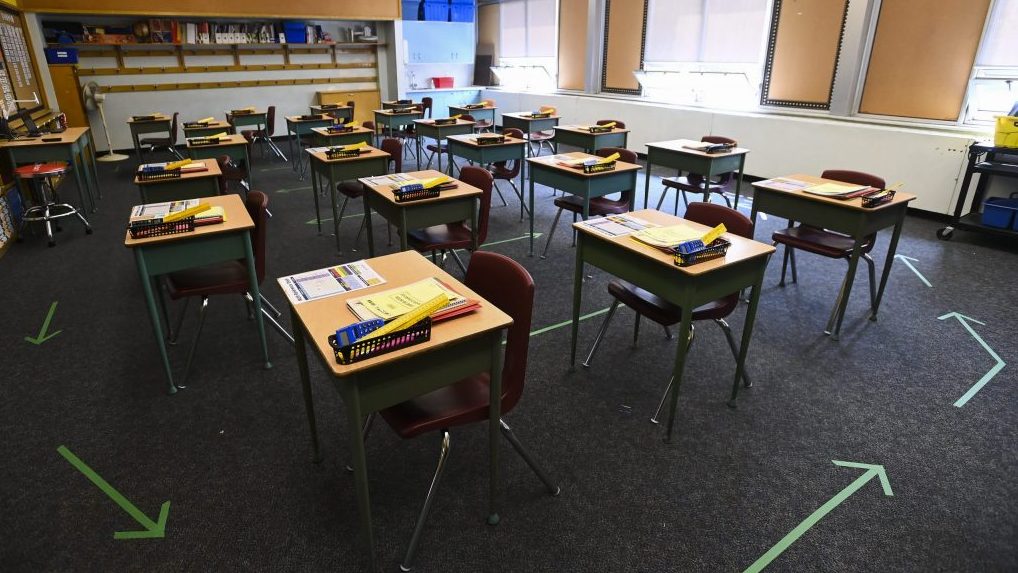
Expanded and repaired schools, plus expanded hospitals and highways are coming to the GTA, tucked in between the billions of dollars of pandemic-focused spending in Ontario’s 2021 budget.
Here is a look at the new projects and funding coming to Toronto and beyond, according to the provincial budget released Wednesday:
Nearly $1 billion to keep cities afloat
The province is committing more than $900 million this year to Ontario’s 444 municipalities. Half of that is going to ease cities’ budget pressures as revenues drop and pandemic costs go up.
A $255-million portion is slated to help shelter systems cope with the additional costs of housing people safety during the pandemic. Then another $150 million is going to help keep public transit on the road as ridership revenues continue to be historically low.
All this cash is on top of last year’s $4 billion Safe Restart Agreement. The province is also calling on the federal government to commit more cash to municipalities.
Commitment to public transit
The budget affirms Ontario’s commitment of $61 billion to public transit over the next 10 years.
The document also singles out the Ontario Line, Scarborough subway, Yonge North Subway Extension and Eglinton Crosstown West Extension as priorities – without further outlining project timing or financial commitments.
It also underlines the province’s commitment to upping GO rail service to every 15 minutes on core lines.
Peel hospital to expand
William Osler Health System’s Peel Memorial site in Brampton is slated to get a new in-patient wing.
Per-capita access to healthcare in Brampton is lagging behind the rest of the province and Mayor Patrick Brown has been calling on the province to build an entirely new facility.
The government has set aside $1.5 million for planning the new wing, but details on how many patients it will serve, as well as costing and a construction timeline, have yet to be released.
GTA Highway cash absent
One project not mentioned in the budget is Highway 413. The roadway would run through Vaughan, Brampton and Georgetown, connecting Highways 410 and 407.
Toronto, as well as the Region of Peel, has opposed the project.
Minister of Finance Peter Bethlenfalvy said Wednesday there’s no money set aside in the budget because the province is waiting on the results of an environmental assessment and public consultations.
However, the province is committing $2.6 billion this year to expand and repair highways and bridges. In the GTA, the main project is expanding Highway 400 to 10 lanes, for 26 km between Langstaff Rd. and Highway 9.
Most of the expansion would also include high-occupancy vehicle (HOV) lanes. Work is already underway and is set to be done in 2026-27.
Repairing and expanding schools
The government is planning to give out $14 billion in capital grants to school boards over the next 10 years to help build 20 new schools and add eight additions to existing schools.
Three of those schools, that had been previously announced, are coming to the GTA, in North York, Etobicoke and Brampton.
Universities and colleges province-wide are getting $5 billion to help with operating costs. The province is in talks with Ryerson University to add additional healthcare training and the budget also says the province is planning another healthcare school for Brampton.
Money for racially diverse, low-income and newcomer communities
As part of the province’s COVID-19 response, it’s dedicating $50 million to communities that are particularly at-risk.
It has designated 15 priority neighbourhoods in Durham, Toronto and Peel. Those neighbourhoods are getting mobile testing sites and custom community outreach to address historical discrimination.
Funding will go to local community ambassadors to help ensure residents have access to vaccinations and other supports, and to address vaccine hesitancy.
The money will also go to the distribution of PPE kits. Some money will go to funding isolation centres, so people who are sick can recover while keeping loved ones and roommates safe.
The province had previously invested $42 million in such isolation centres.
Urban indigenous vaccine outreach
The province is putting $50 million into ensuring the GTA’s indigenous community, along with other urban indigenous communities and First Nations, has access to vaccinations and relevant information.
Property tax reassessments paused
In 2020, the provincial government postponed this year’s property tax assessments. The budget says they are further postponing them to help give homeowners budget certainty.
Want to get out of the city?
Under the budget, between May 1 and September 2, access to provincial parks is free for the day from Monday to Thursday.
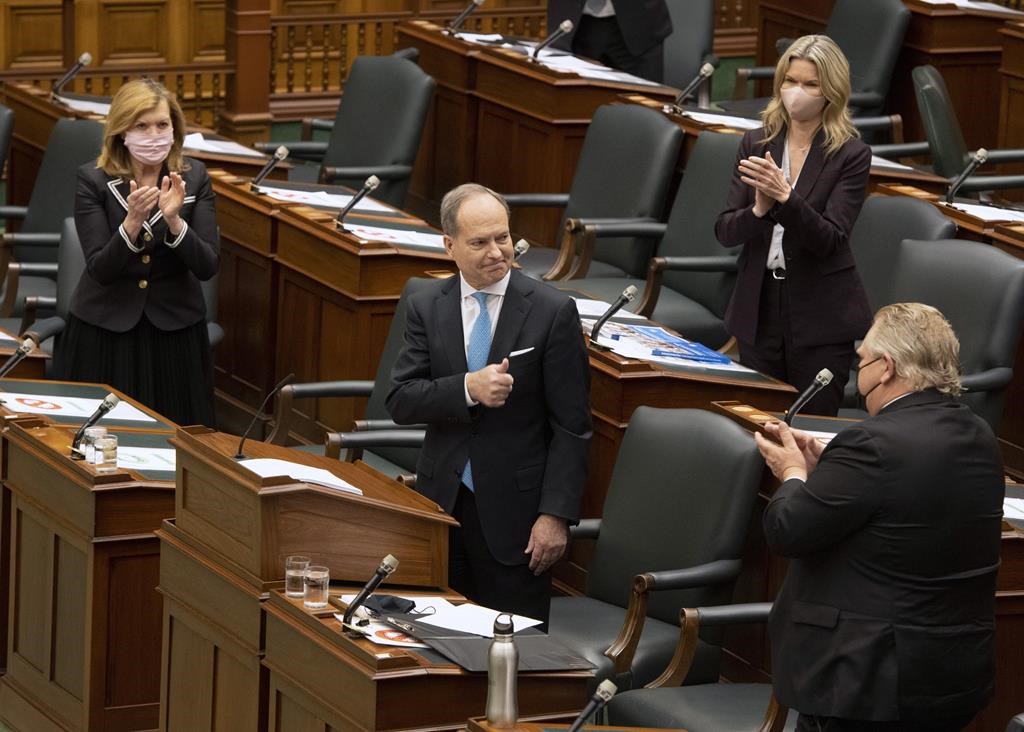
TORONTO, Kan. — Critics of Ontario’s $186-billion spending plan say it fails to meet the immediate needs of residents and small businesses struggling through the pandemic.
The budget tabled by the Progressive Conservative government includes $6.7 billion in pandemic spending, including $1 billion for the provincial vaccination effort and $2.3 billion for contact tracing and testing.
The government will offer a second round of grants to small businesses to help with pandemic expenses, create a new job training tax credit and provide more benefits to families with children.
But opposition critics, unions and other stakeholders say supports for people are too slow, insufficient or nonexistent.
NDP Leader Andrea Horwath highlighted the lack of funds for hiring more teachers, slow relief for long-term care and the absence of a paid sick day policy to protect workers during the worsening third wave of COVID-19 infections.
Catherine Fife, the NDP’s finance critic, says business grants didn’t expand to more sectors and left out a large number of small businesses that employ many Ontarians.
“If there was ever a budget in the history of this province to invest in people, in businesses, this was the one, and this government missed the mark,” Fife said Wednesday.
The Canadian Union of Public Employees said the budget is a missed opportunity that makes more promises to help businesses than struggling workers.
“This budget is just classic trickle-down economics and it’s the last thing communities need,” CUPE Ontario President Fred Hahn said, also pointing to the lack of paid sick days.
Liberal Leader Steven Del Duca said the budget doesn’t offer adequate support for women, young people and racialized Ontarians who have lost work during the pandemic.
Unions representing education workers criticized the budget for not spending on adequate in-school safety measures, noting health impacts on workers during the pandemic including hospitalizations from the virus. They said the government is “shortchanging” students and families.
“Obviously, education is not a priority for this government,” their joint statement said.
Advocacy group People for Education said the budget made no mention of the critical need to address the effect of the pandemic on schools, students and staff. Instead, the government is sending “small cheques” to parents through its Ontario COVID-19 Child Benefit, it said.
“It would be more efficient (and) effective to spend that amount collectively on resources and programs in schools to address long-term impacts of COVID,” Annie Kidder, the group’s executive director, said on social media.
Others criticized the lack of environmental considerations in the economic recovery plan. Keith Brooks, programs director of Environmental Defence, said his organization was disappointed the budget didn’t include plans for a green recovery that centres on climate change.
“We were hopeful that the Ontario government would take this opportunity to revisit and reset its hostile approach to the environment. Sadly, that’s not the case,” Brooks said in a statement.
Business, health-care and industry groups, meanwhile, welcomed relief laid out for their sectors.
Anthony Dale, CEO of the Ontario Hospital Association, said the group appreciates new funding as hospitals work to “maintain stability during this ongoing crisis.”
Ontario Long Term Care Association CEO Donna Duncan said long-term care spending around staffing and expansion of available beds “will make a meaningful difference in the lives of Ontario’s seniors now and in the future.”
The Ontario Chamber of Commerce also welcomed supports for businesses and funding specifically geared toward the tourism sector, jobs training and broadband internet.
This report by The Canadian Press was first published March 25, 2021.
Holly McKenzie-Sutter, The Canadian Press
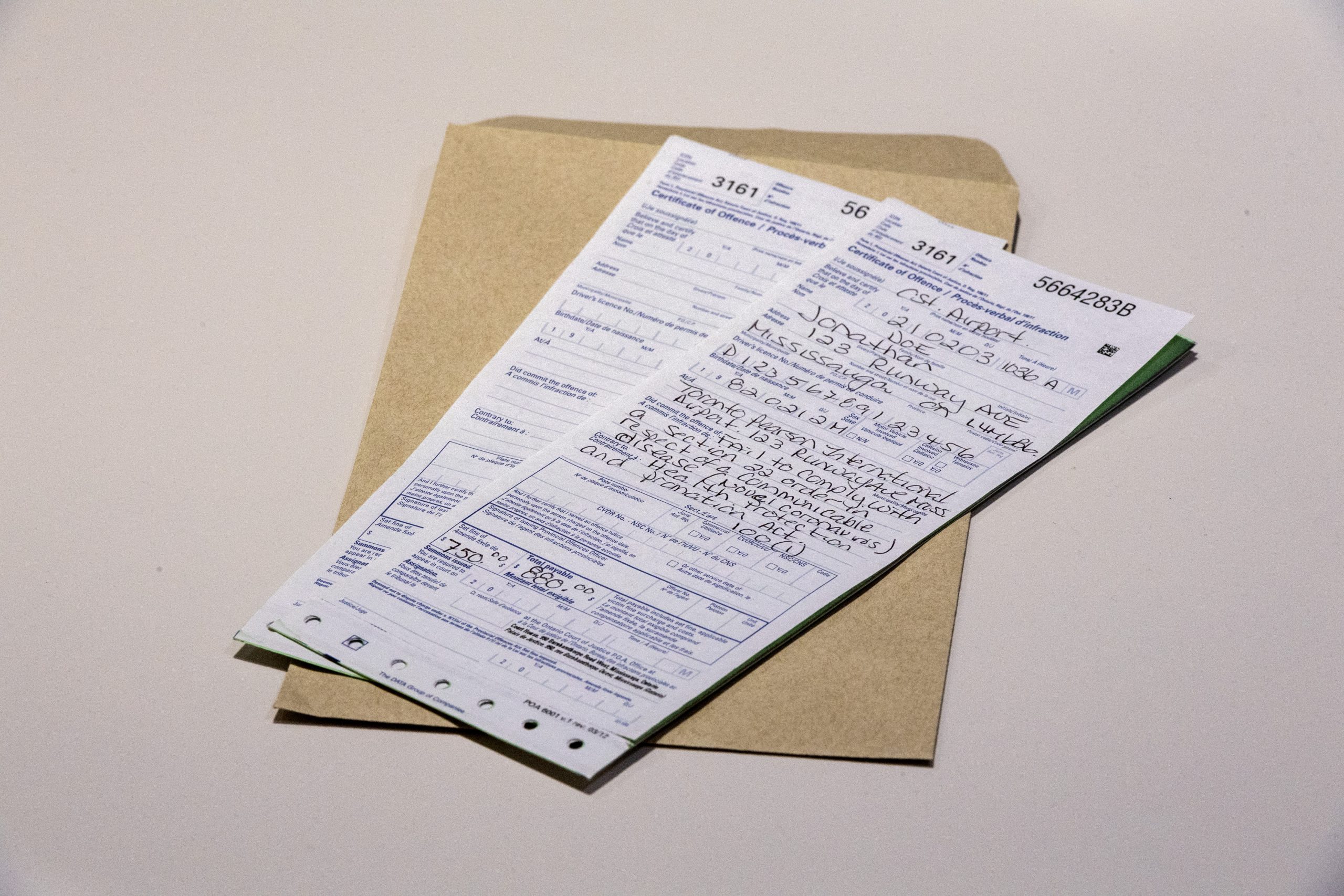
Peel Regional Police say investigators from the airport division criminal investigations bureau have charged an Edmonton man after he allegedly used a fraudulent COVID-19 document upon arrival from an international flight at Toronto Pearson Airport.
Police were notified to assist the Canada Border Services Agency (CBSA) on March 19 around 4:00 p.m. when border officers were inspecting documents related to international travel.
Following further inspection by the Public Health Agency, they determined that one of the papers was fraudulent.
A 45-year-old man from Edmonton was arrested and charged for unlawfully and knowingly using a fraudulent document.
He was held for a bail hearing and made a court appearance in Brampton on March 22.
The man was released from custody on specific conditions and returned to CBSA at Pearson Airport for processing by the Public Health Agency of Canada.
Anyone with information regarding this matter is asked to contact investigators.
In early March, the federal government said it was working with authorized hotels to address the growing number of stories of travellers facing chaotic conditions when they arrive for their mandatory three-day hotel quarantine after flying into Canada.
The opposition Conservatives have repeatedly called on the feds to suspend the hotel quarantine system, a request that began after an alleged sexual assault that took place at a quarantine hotel on February 17.
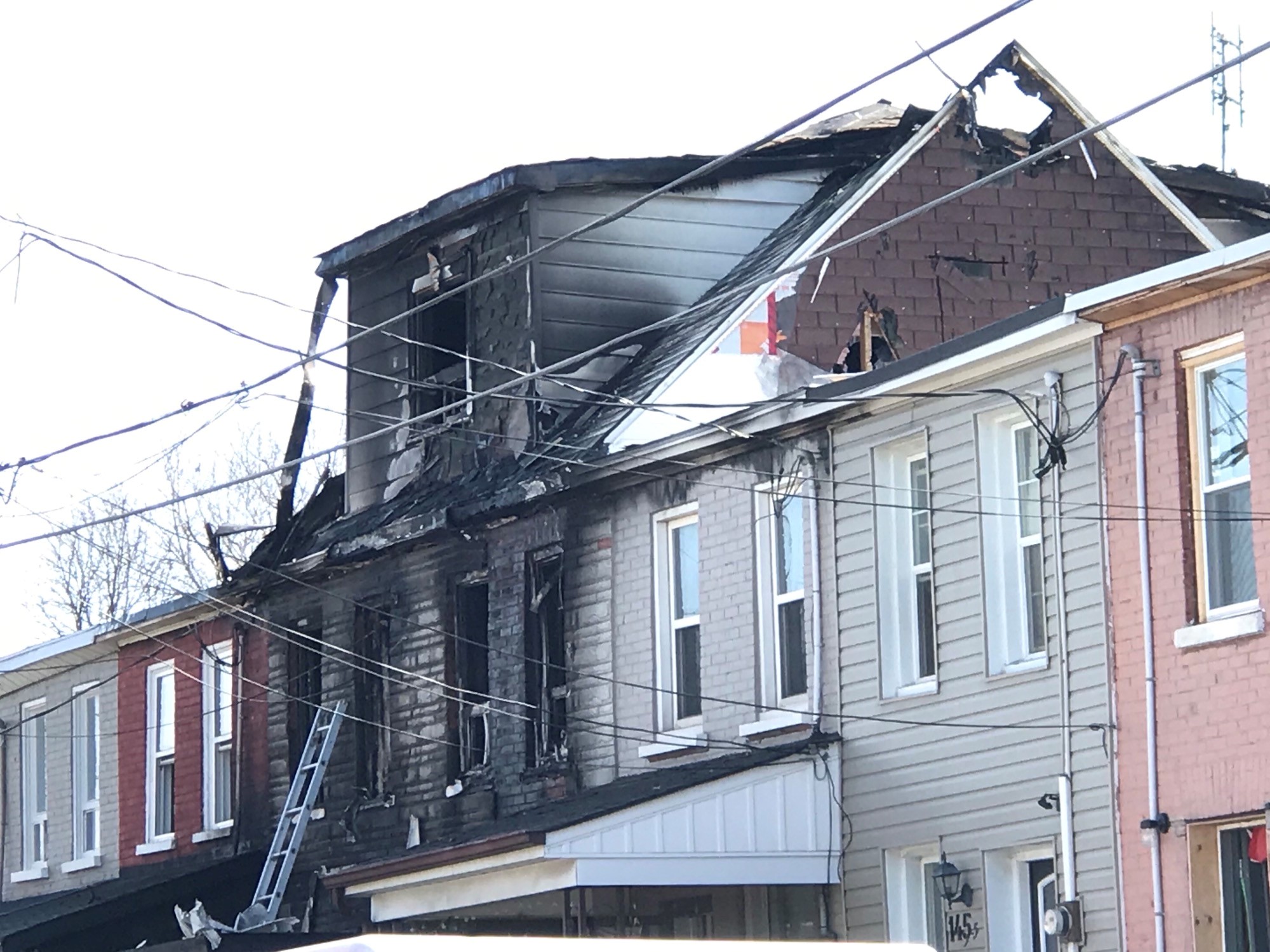
Heart-wrenching details about a massive blaze at an Oshawa row house came to light Tuesday as a resident of the home who escaped the inferno shared his experience and recollections from a traumatic night.
WATCH: https://toronto.citynews.ca/2021/03/23/oshawa-fire-survivor-experience/
Michael Thompson was in bed on the second floor of the home on Olive Avenue when he says the blaze broke out on the first floor, making its way up. Tenants from the first floor alerted him to the fire around 1 a.m. Monday.
“When we opened the bedroom door, there was so much smoke, we couldn’t see anything,” he said. “We had to feel our way around, go to the back of the house, smash out a window and get out through the back,” because the stairs were engulfed in flames.
While breaking through the window, Thompson injured himself, leaving him with stitches and a bandaged right hand.
He said the owner of the home then went to the third floor and smashed out some windows for the two men who lived there as tenants.
“He screamed for them, but there was no answer,” said Thompson. “They were already either overcome by smoke or heat. There was no answer whatsoever so they didn’t make it out.”
Thompson added that a couple and one of their sons were on the first floor and made it out of the home. Two other boys who were in bed on the second floor unfortunately did not, due to a misunderstanding during the chaotic situation.
“I thought the father had them, he thought we had them,” he said, tearing up. “By the time we realized they were still in there, the house was engulfed in flames. Flames were shooting out the window, it was impossible to go back in.”
“I freaked out…panicked…heart racing. I knew they weren’t going to get out,” he added.
Thompson said he was absolutely helpless, describing the feeling as having his hands tied. He explains that even the firefighters could not get into the home due to the size and temperature of the fire.
“I couldn’t help anybody, that’s what’s bothering me the most” he said through tears. “I think everybody should have gotten out.”
Thompson said he only returned to the area to meet one of the victim’s brothers who lives on the street, but cannot bring himself to visit the wreckage.
“I can’t look at this house right now,” he said.
On Monday evening, two bodies were recovered from the home and two other people are still unaccounted for at this time. Their ages and other details have not been released.
WATCH: https://toronto.citynews.ca/2021/03/23/oshawa-fire-survivor-experience/
The fire sent a total of four residents from the home to hospital and three were released the same day. One resident remains in hospital with serious injuries.
With files from News Staff
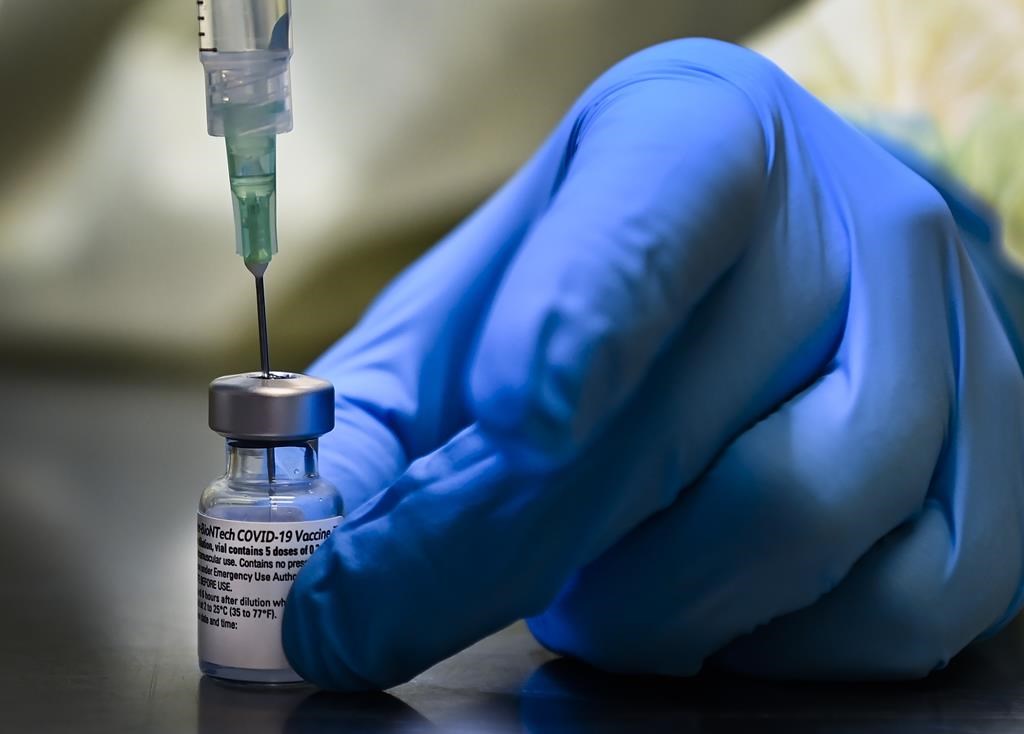
The federal government says it does not believe COVID-19 vaccine shipments to Canada would be affected by export restrictions being considered by the European Union.
A report in the New York Times says the E.U. is finalizing emergency legislation that would give it broad powers to curb exports for the next six weeks of COVID-19 vaccines as part of its response to supply shortages at home.
The report says rules would make it harder for pharmaceutical companies producing COVID-19 vaccines in the European Union to export them.
In an emailed statement, the press secretary for Mary Ng, minister of small business, export promotion and international trade, says Ng’s counterparts have assured her that these measures will not affect vaccine shipments to Canada.
Youmy Han says the federal government has been in constant contact with its counterparts in the E.U. and its member states at all levels of government.
She says Canada will continue to work with the E.U. and its member states to ensure that our essential health and medical supply chains remain open and resilient.
“We share the urgency of Canadians to ensure access to life-saving vaccines as rapidly as possible, and our government is operating with this sense of urgency every single day,” Han wrote late Tuesday.
“Our expected shipments of vaccines have been arriving in Canada and we are on track to receive 9.5 million doses by the end of March.”





